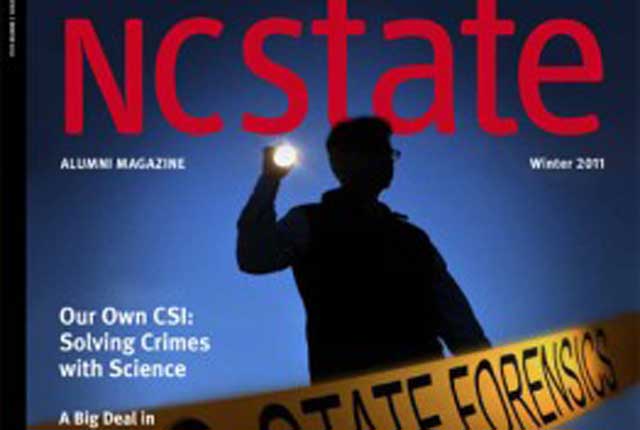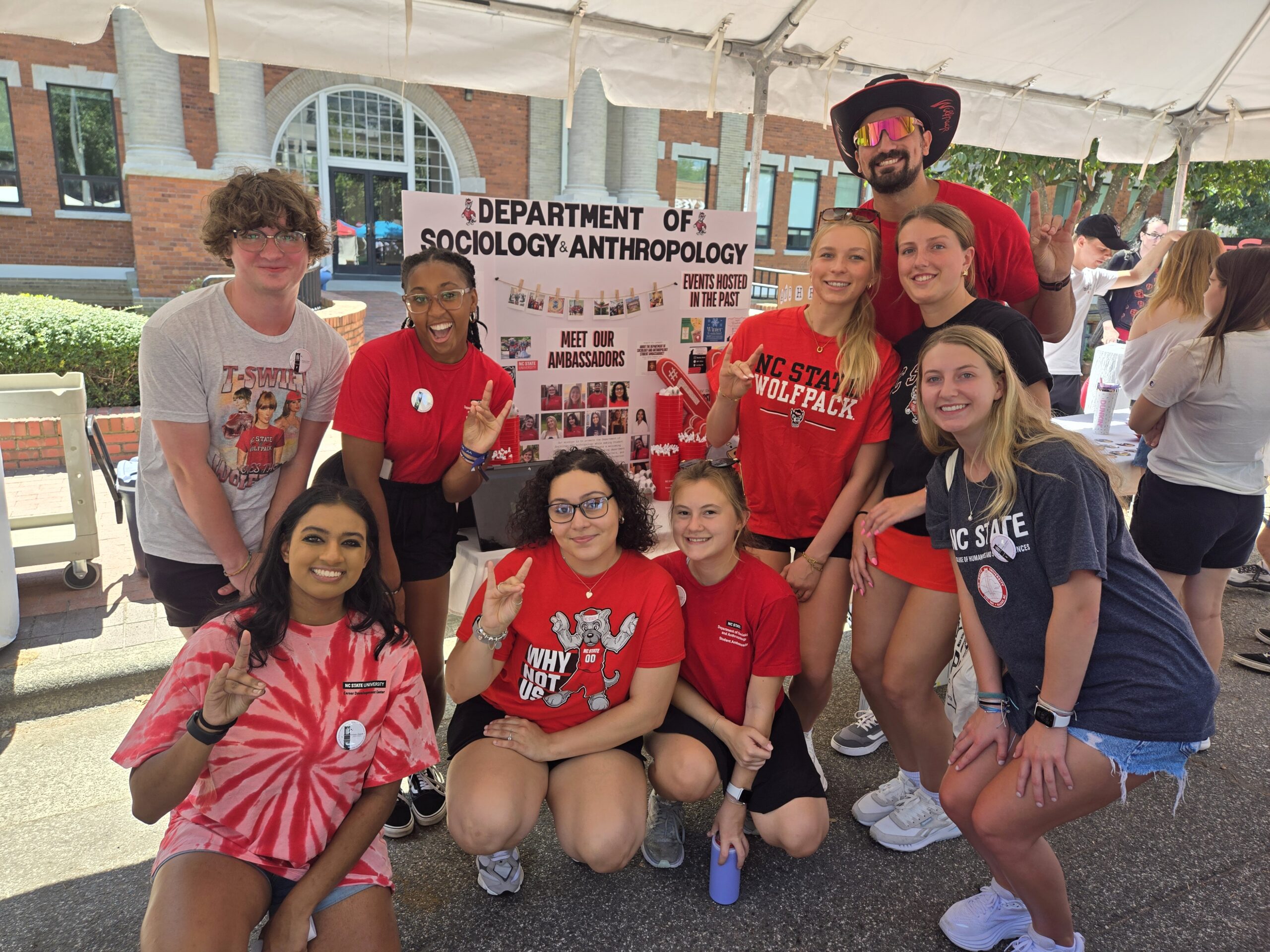What do NC State scientists prefer: CSI or Law & Order?


For the cover story of this winter’s NC State magazine, the NC State Alumni Association magazine’s editor talked to researchers across campus who are teaming up to advance work in the area of forensic science. From studying blow flies to mapping skulls to developing a database of fabric dyes, these scientists are using their specialized knowledge to help solve crimes.
Editor Sylvia Adcock (’81) says that while she enjoyed talking with the researchers–including CHASS anthropologist Ann Ross–about the very serious work they’re doing, she couldn’t resist asking them for their thoughts about the plethora of crime shows on television these days:
Here are their responses, as they appeared in the Alumni Association’s Red and White for Life blog:
Wes Watson, professor of entomology: I used to watch CSI for entertainment. I really enjoy finding flaws in the biology. I remember one time they incorrectly ID’d a type of beetle on remains. (Watson uses the life cycle of the blow fly to estimate the time of death.)
Ann Ross, professor of anthropology: Bones? Can’t stand it. Too unrealistic. Law & Order, love it, all of them. I love those shows. You get the police work and the prosecution side in the courtroom, and it’s a nice marrying of the two. CSI—they always work in the dark. It bothers me. Turn some lights on, people! (Ross has developed computer software to help investigators determine the ethnic origin of skeletal remains.)
Billy Oliver, archeologist and teaching associate: Some are better than others. My wife loves Dexter. I watch CSI and Castle and things that involve a twist. CSI: New York is a little out there. (Oliver helps teach classes on how to excavate bodies and document evidence; he has been called on to help investigate numerous crimes.)
Tim Buie ’88 ’98 MS, assistant professor of industrial design: I hate some of the stuff. They’ll have a video from an ATM and they’ll enhance it. Suddenly it’s super high-res and you can read the guy’s driver’s license from 300 feet [something that couldn’t happen in real life]. (Buie and a colleague from the College of Engineering are developing a system to help investigators virtually recreate crime scenes in 3-D.)
– Sylvia Adcock
- Categories:


